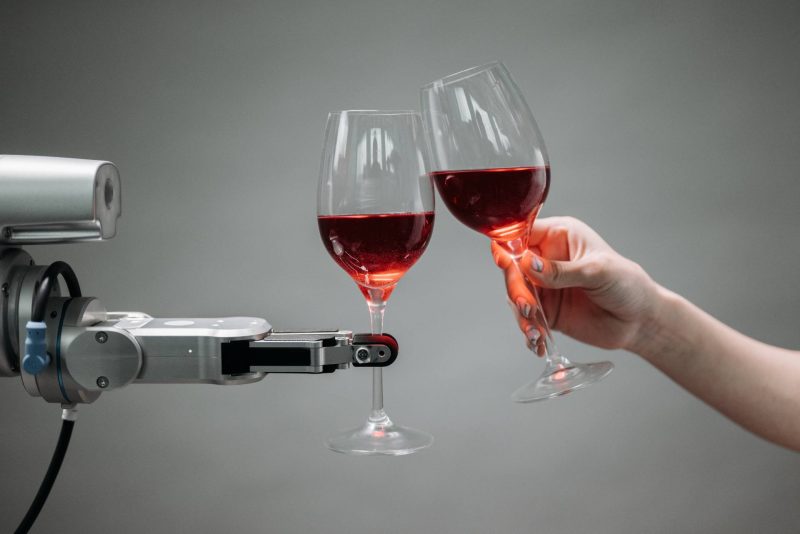AI in the hospitality industry: what can we expect?
In recent months it seems as though AI (artificial intelligence) has taken the world by storm. With the introduction of Chat GBT and other websites offering easy access to advanced AI technologies, it seems that the planet is starting to change and discussions surrounding the possibilities are everywhere we turn. But what can we expect for hotels, resorts and restaurants into the future? How will AI in the hospitality industry change the way hotels operate? In this article we look at artificial intelligence and discuss its relevance to the hospitality industry.
What is AI?
As you may already know, artificial Intelligence (AI) is a field of computer science that focuses on developing computer systems that are able to think, learn and act like humans do. In recent months, it is safe to say that AI has taken the world by storm and offered all sort of industries the chance to reimagine what the future looks like.
AI can recognise patterns, draw conclusions, and even make decisions based on data and information that already exists. As a result of its ‘intelligence’, AI technologies can be used for a variety of tasks that are currently carried out by humans. Understanding natural language, playing games, recognising images, and predicting outcomes are some basic examples of what AI is able to do in 2023.
Successfully used in many industries, such as healthcare, finance, and robotics, AI is making its way into many of our lives, much quicker than we could have imagined. Predictions show that AI will continue to transform the way we interact with technology and will pave the way for a future of more intelligent machines.

How is AI already being used in the hospitality industry?
When it comes to AI in the hospitality industry, you might think that haven’t come to face to face with it quite yet. However, the likelihood is you are probably incorrect in such a judgement.
In fact, AI is already being used in the hospitality industry in a variety of ways. From virtual assistants to automated customer service, the technology is being leveraged to improve the customer experience and increase efficiency.
Virtual assistants and customer service
One of the most common uses of AI in hospitality comes in the form of virtual assistants. As AI technology has become more advanced, virtual assistants have become increasingly capable of understanding customer queries and providing accurate, personalised responses.
For example, you may have spoken to a chatbot on a hotel website – one which can answer simple questions or provide personalised recommendations or ideas. AI-powered chatbots have for a while now been used to answer basic customer service questions, such as “How do I change my reservation?” or “What time is check-in?”, reducing the load on customer service representatives and freeing them up to focus on more complex issues.
Inventory management
Another way in which AI is being used in the hospitality industry, is through inventory management. Specifically, AI is being used to help with inventory and restaurant operations, whereby AI-powered systems track orders, monitor stock levels, and suggest menu items that customers may be interested in. One of the main benefits of this is a reduction of waste as well as improved efficiency, and in general, increased customer satisfaction.

What else should we expect from AI in the hospitality industry?
It goes without saying that in the future, AI will become even more intelligent and therefore an even more integral part of the hospitality industry. So what should we expect from AI in the hospitality industry?
Increasingly complex tasks will be carried out
It is assumed by experts in the field that AI-powered technology will be used to further automate customer service tasks, such as answering customer inquiries, making reservations and booking rooms.
Whilst AI-powered chatbots already exist, in many cases these are only able to answer basic questions, and in some cases their responses can cause anger amongst those guests who have specific questions, requests and queries. In the future, AI will become increasingly capable of handling more complex tasks, such as helping individual customers find nearby attractions and planning activities.
Customisation and the enhancing of customer experiences
Instead of human concierge services, think for a moment about AI concierge services. It is thought that as we move forwards, AI will be used to further improve customer experiences, with personalisation at its core.
AI-powered systems can already be used to offer tailored services and experiences to individual customers, recommending activities to guests based on their preferences. However, it is thought that this could be integrated more deeply into the hospitality industry in the coming years. Activities recommended based on a customer’s interests and location will become increasingly common, whilst more complex layers, such as searching for relevant discounts, will be seamlessly integrated.
Comprehensive predictive analytics
Across all kinds of departments, it is thought that AI will become instrumental in predicting and preparing hospitality businesses in their operations. Leveraging predictive analytics, the technology will be able to analyse data and predict customer behaviour and market trends, thus resulting in better equipped and managed hotels, more informed decisions and effective marketing strategies.
In particular, AI will become valuable for hotels and their revenue management processes. By using predictive modelling, hotel professionals will be able to analyse historical data and predict future demand and revenue. In doing so, pricing will be optimised and revenue, maximised at all times.
Enhanced security and safety
When it comes to safety and security, AI is also set to change the way the hospitality industry functions, for both guests and staff alike. Firstly, using technologies such as facial recognition and motion detection, AI will help protect guests and their belongings. Specifically, this technology could include in-room sensors for security but also room entry and check-in technologies.
Secondly, with the help of data analysis and AI, hotels will also begin to develop initiatives to detect risks and increase general safety within a property by detecting issues and notifying hotel management in emergency situations.

The future of hospitality with AI in the picture
AI is becoming an increasingly important tool for the hospitality industry, and its use is likely to continue to grow in the coming years. As AI technology becomes more sophisticated and more widely adopted, the hospitality industry is likely to benefit from increased efficiency, improved customer experiences, and reduced costs.
As we move forwards towards a future where AI plays a larger role, hoteliers should familiarise themselves with its various uses, or they risk falling behind in the industry. Set to bring many improvements and enhanced capabilities to industry in the coming years, those who adapt and adopt are likely to see greater success.
Work with 1834 Hotels
1834 Hotels is an evolutionary one stop hotel, motel, resort and pub management solution. We take the essential and crucial tasks of hotel operations and adapt them to the tools, systems and automation of today.

